Enhancing Soft Skills for DevOps Engineers: Essential Non-Technical Skills to Thrive
Growing Learning and Adapting to Change
A Mindset of Continual Learning
In IT—and especially in DevOps—adopting a mindset of continual learning is non-negotiable. New tools, methodologies, and best practices emerge constantly. By staying curious, experimenting, gathering feedback, and iterating, you’ll sharpen both your technical and non-technical skills for long-term success.
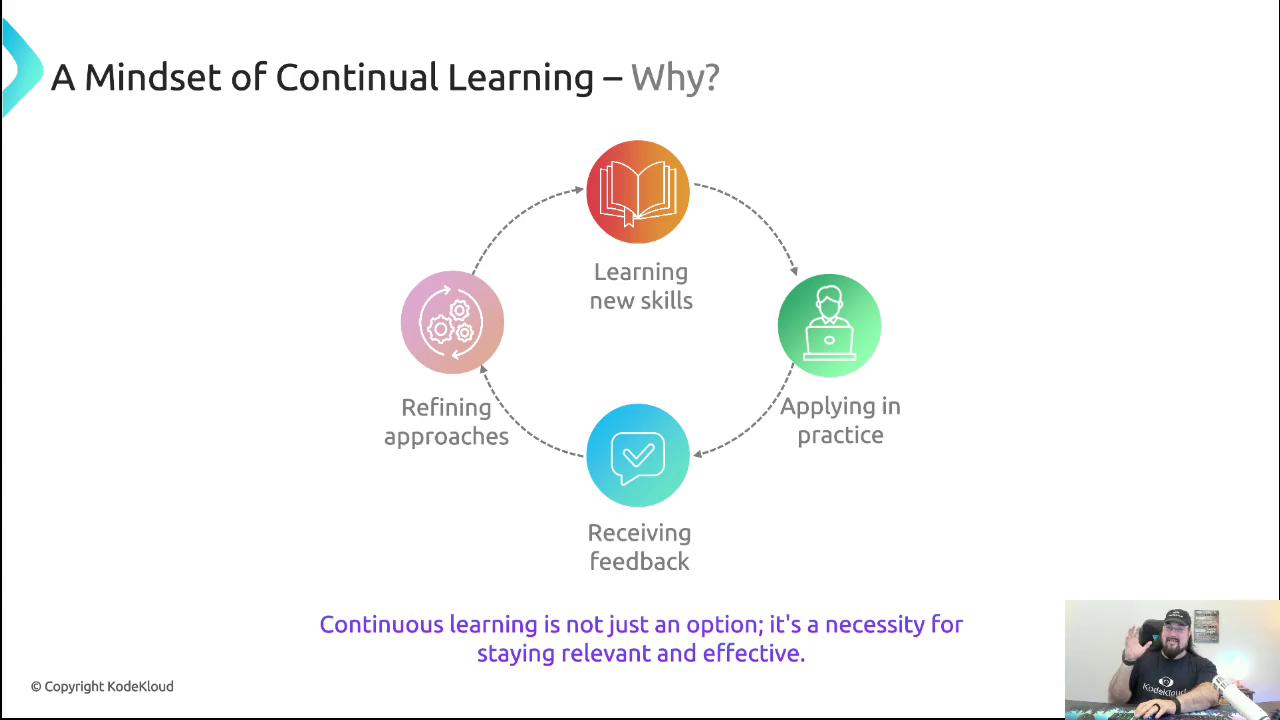
Make Learning a Daily Habit
Consistency beats intensity. Even 15–60 minutes per day can yield exponential returns:
- Explore new features in the tools you already use.
- Research industry trends that could accelerate your workflow.
- Schedule “learning sprints” alongside your regular tasks.
Note
Treat learning blocks like meetings—put them on your calendar and protect them.
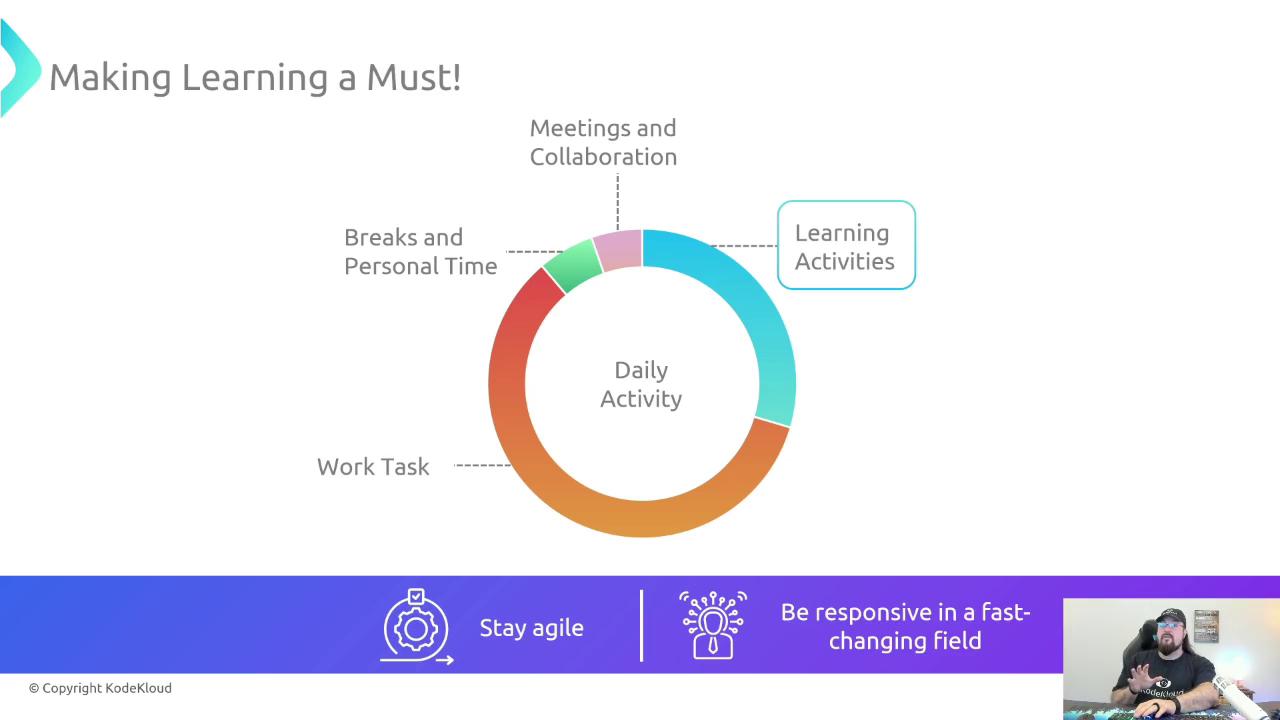
Foster a Learning-Friendly Environment
Whether you’re a solo engineer or leading a team, make learning part of your culture:
- Allocate time for tutorials, certifications, or hands-on experiments.
- Provide infrastructure—staging servers, sandbox accounts, tool licenses—that supports exploration.
- Balance “just-in-time” learning with delivering stakeholder value.
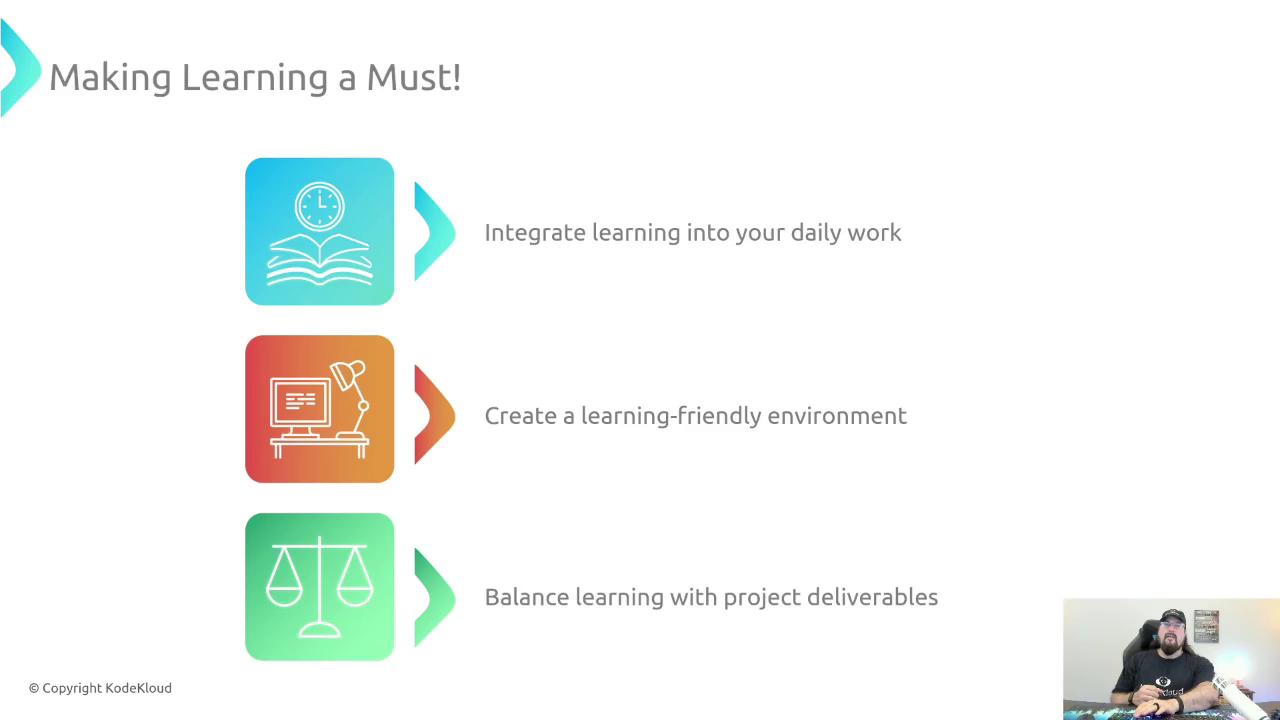
Embrace Discomfort in the Learning Process
It’s normal to feel challenged when tackling something brand-new. Your internal dialogue may go:
| Phase | Mindset |
|---|---|
| Initial Confusion | “I’m not quite getting it yet.” |
| Emerging Clarity | “I’m starting to understand.” |
| Mastery | “Now I’ve got it!” |
Small, consistent efforts lead to those breakthrough “aha” moments.
Note
Mistakes are part of the journey. Each error uncovers an opportunity to learn and grow.
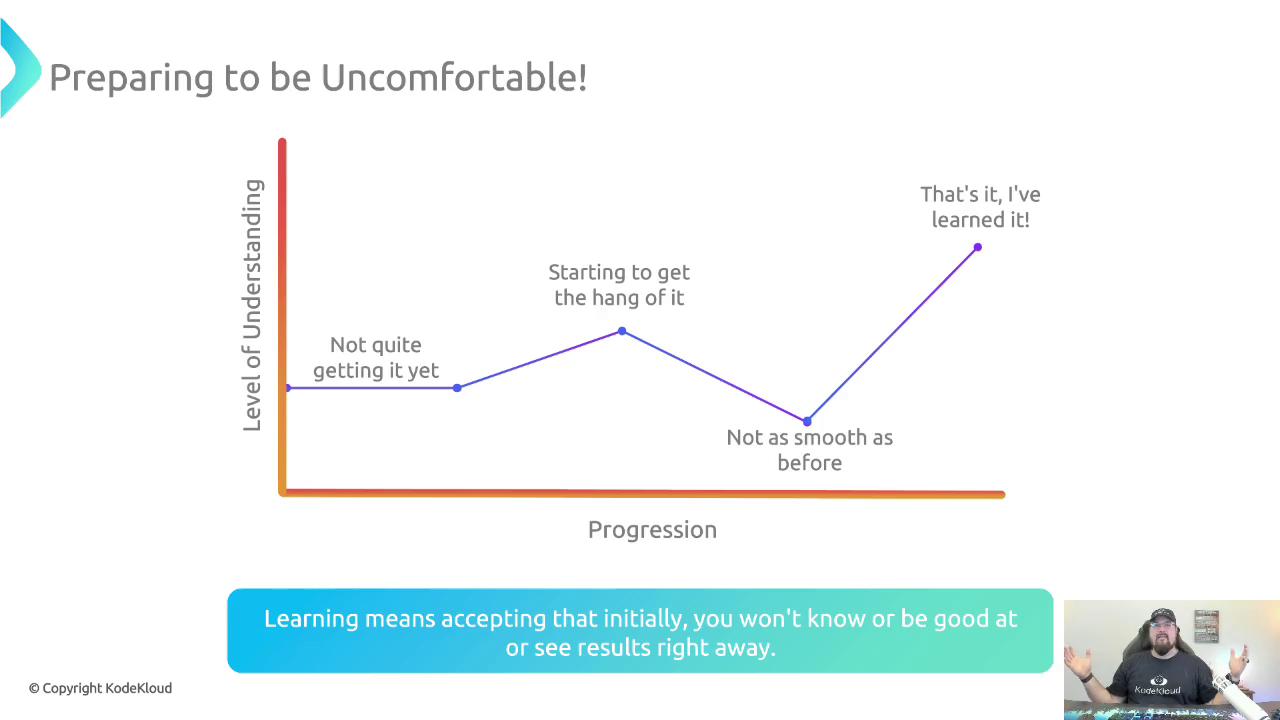
Beware the Risk of Stagnation
In fast-moving sectors—and even in slower-paced environments—skills grow stale if you stop learning. Without continuous improvement, your proficiency falls behind industry standards.
Warning
Pausing your learning puts you at risk of obsolescence. Keep pace with tools, best practices, and security updates.

Accept New Tools and Ideas
Innovation fuels efficiency and sometimes survival. You don’t need every new gadget, but stay open to those that can automate or simplify your most complex tasks:
- AI coding assistants like Google’s Gemini Duet, GitHub Copilot, and Amazon CodeWhisperer
- Infrastructure-as-Code frameworks—Terraform, Pulumi, AWS CloudFormation
- Observability and CI/CD pipelines—Prometheus, Grafana, Jenkins, GitLab CI
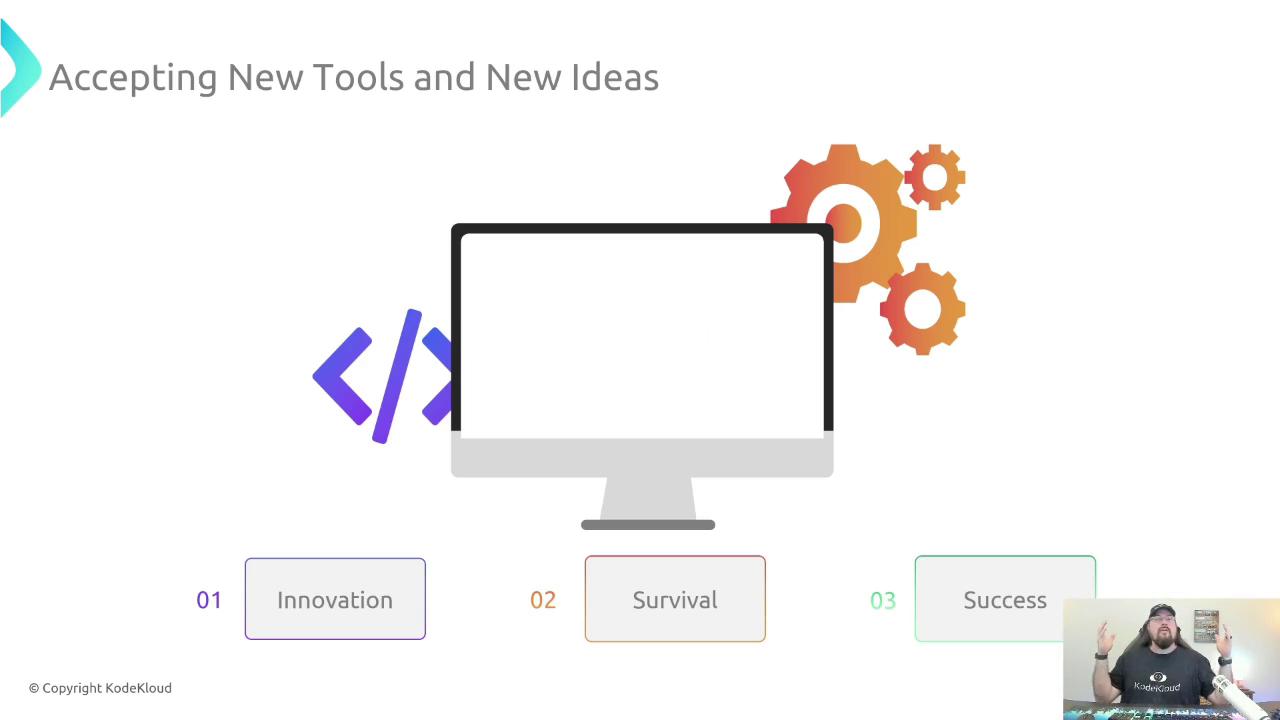
Develop Non-Technical Skills
Technical expertise is crucial—but in DevOps, communication, collaboration, and culture are equally important. Below is a quick overview:
| Skill | Benefit | Example Activity |
|---|---|---|
| Communication | Clear requirements, fewer misunderstandings | Host a cross-team demo or lunch & learn |
| Collaboration | Faster problem resolution, shared ownership | Pair programming or mob sessions |
| Culture | Higher morale, continual feedback loops | Run retrospectives with action items |
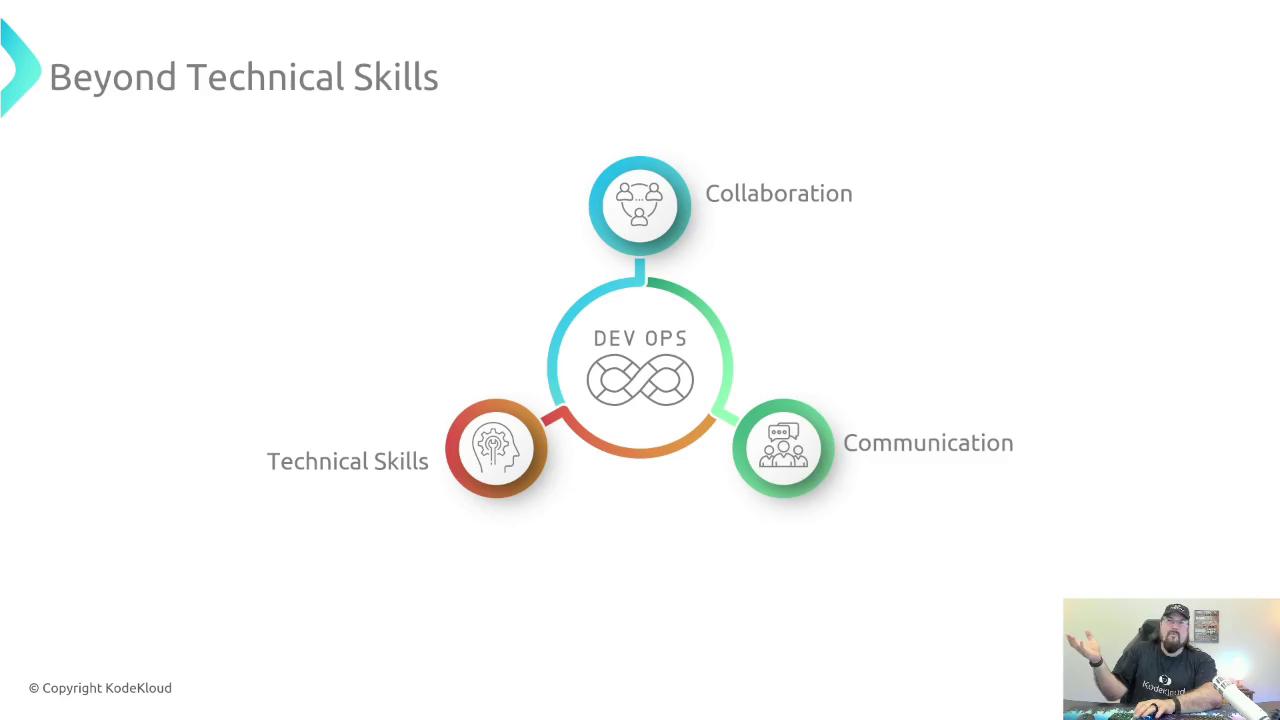
Create a Symbiotic Relationship with Your Business
As you upskill, your business impact grows. Align your learning path with organizational goals to ensure mutual benefit:
- Identify projects where new skills can deliver immediate value.
- Seek mentorship and internal training budgets.
- Share your learnings—host brown-bag sessions or write internal articles.
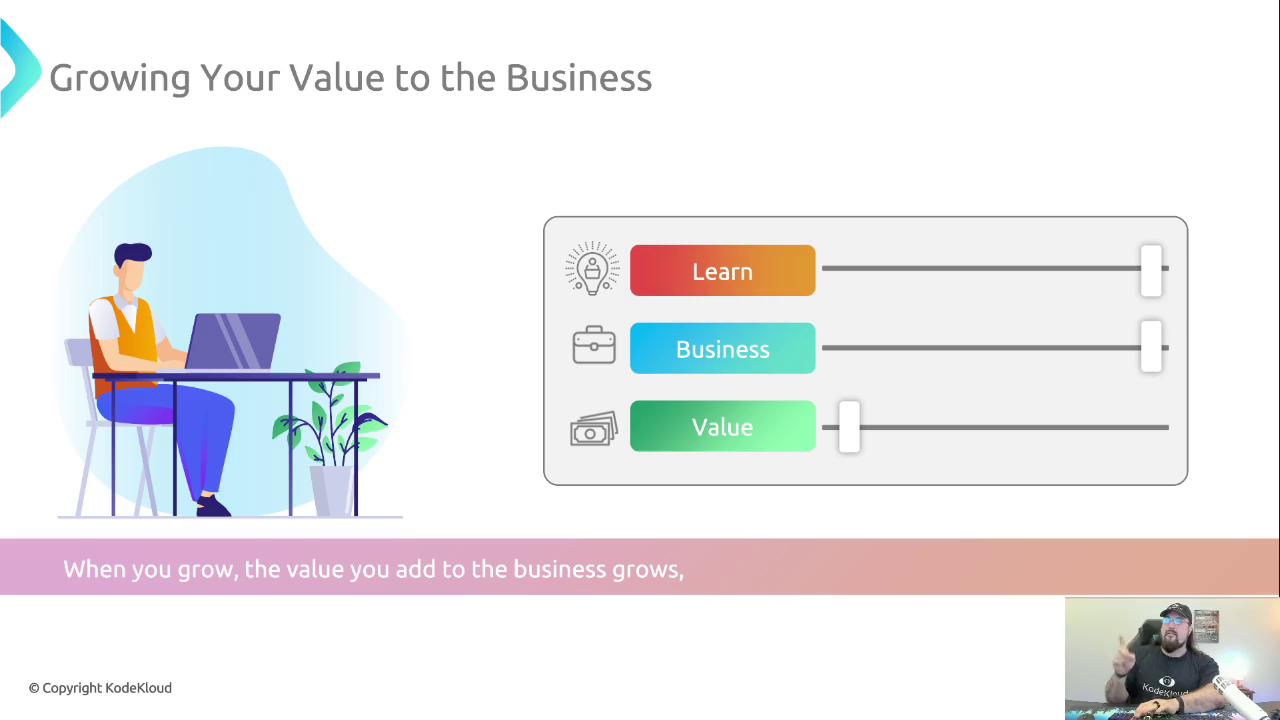
Summary
Continual learning may feel uncomfortable, but it’s the key to staying relevant and driving innovation. Choose one area—technology, collaboration, or communication—and improve it a bit each week. Over time, these incremental gains compound into substantial career growth.
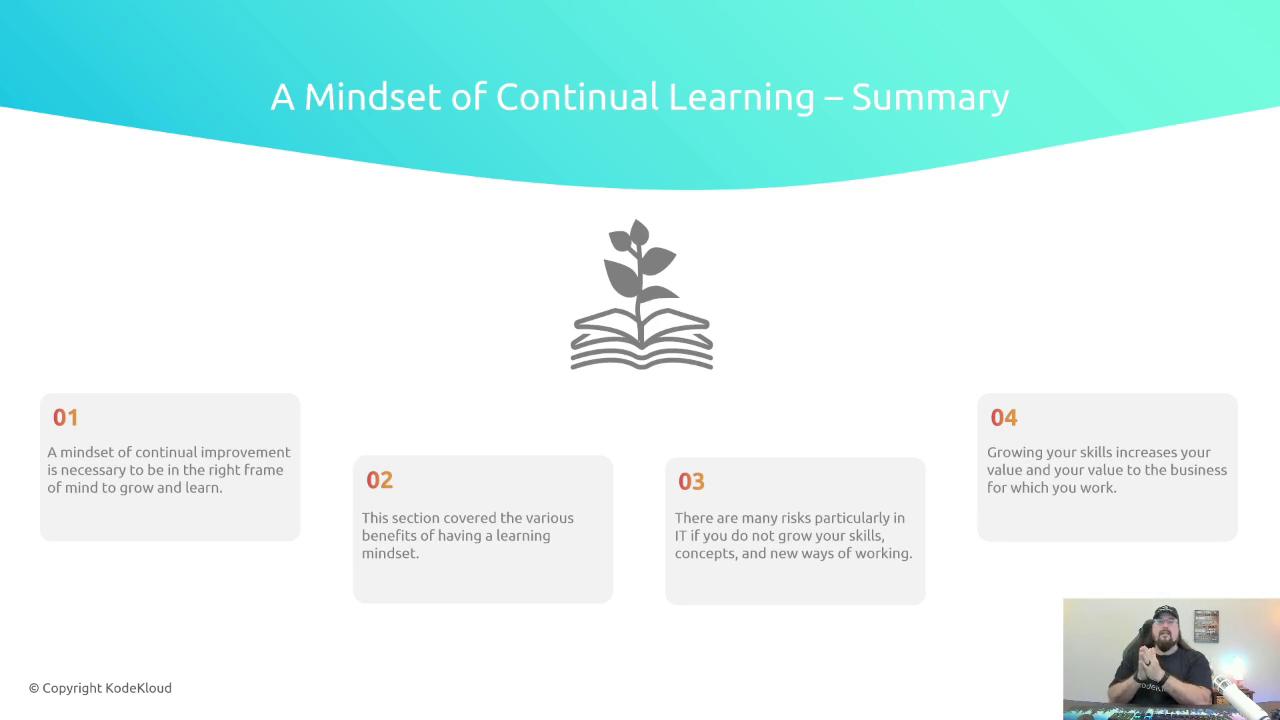
Links and References
Have questions? Reach out at [email protected] or join our forums. See you in the next lesson!
Watch Video
Watch video content